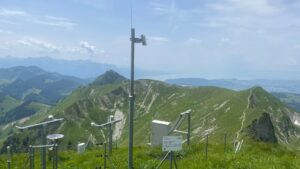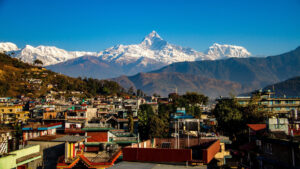FS 3.190: Africa mountain community-based solutions
Details
Full Title
Building resilience to climate change through mountain nature-based community enterprises in Africa
Scheduled
—
Convener
Co-Conveners
Assigned to Synthesis Workshop
—
Categories
Adaptation, Ecosystems, Conservation, Sustainable Development
Keywords
Africa Mountain community, Climate resilience, adaptation solutions
Description
Africa Mountains cover 3 million km² of Africa surface, with heights varying between 1,500 m and over 5,000. Africa mountains are hotspots for biodiversity conservation and essential sources of food, medicine, raw materials, and water (water towers). Mountains play vital role in climate monitoring, offering favorable conditions compared to the drier lowlands. Mountains serve also as home to most of Africa communities. In return, mountain communities have a notable role in sustainable mountain ecosystems conservation and development. They are key actors, reliable partners and implementers, source of knowledge and best conservationists. However, Africa mountains and communities, face significant challenges such as vulnerability to climate change, land degradation, unsustainable agriculture, limited access to sustainable finance, and poverty. As contribution to the sustainable mountain ecosystems and community development, the Albertine Rift Conservation Society (ARCOS) is implementing an Africa Mountains Programme, aiming to promote policies and knowledge-based activities for sustainable mountain development in Africa. This poster will particularly focus on ARCOS’ initiatives to build mountain communities resilience to climate change through mountain nature-based community enterprises. We will showcase how an integrated approach called BEST (B: Building leadership and sustainable community institutions; E: Enhancing environmental resilience; S: Sustainable business solutions and T: Transforming and inspiring others), developed by ARCOS, is successfully transforming mountain community livelihoods and build their resilience to climate change.


